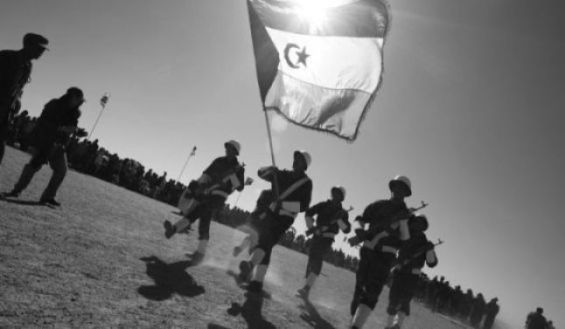In the early 1980s, King Hassan II (1961–1999) leveraged the Polisario's use of sophisticated weapons during the Battle of Gueltat Zemmour to convince many countries of the external support behind the separatists against the Moroccan army. This strategy helped him secure broad international backing for Morocco's stance on the Sahara conflict.
A CIA document, dated April 1, 1983, and declassified in July 2011, notes that «since late 1981, the Polisario Front has suffered major setbacks with its tactics that were intended to force Morocco to negotiate a settlement of the conflict in Western Sahara».
After this battle, Algeria shifted its approach toward Morocco, focusing more on diplomacy rather than military actions. In this context, the Polisario Front feared being abandoned by Algiers.
The CIA document confirms that «Algeria’s support is critical to the survival of the Polisario», adding that «changes in Algiers’s attitude toward the conflict have had a direct impact on the Polisario’s strategies and options».
Contrary to Algiers' claims, the document suggests that Algeria's support for the separatist movement is not driven by the principle of «support for the self-determination of peoples». Instead, it is fueled by «Algeria’s deep-seated rivalry with Morocco for North African predominance and its determination to keep the Sahara from being incorporated by its competitor». This consideration makes Algerian leaders determined «to prevent the annexation of the Sahara» by the kingdom.
The document emphasizes that Algeria «thereafter participated in the war solely by proxy, while further strengthening its forces along its western frontier to deter Morocco from hot pursuit or preemptive raids into Algerian territory».
The document continues: «Algeria seems more inclined to seek a diplomatic solution to the Sahara conflict. It has generally advised the Polisario Front in this direction. However, there is no evidence that the Algerians are predisposed to compromise on anything other than tactical issues. Their focus is on implementing the Organization of African Unity's plan to hold a referendum in the Sahara, with the belief that its results will favor a dependent state».
«Algiers seems more willing to pursue a diplomatic solution to the Sahara dispute and has generally counseled the Polisario in that direction. Increased direct contact between Moroccan and Algerian officials, including a summit meeting between King Hassan and President Bendjedid in late February, has generated greater hopes in Algiers that negotiations might be stepped up».
A change in Algeria's position
The document explains: «The most significant shift was the Polisario’s perception of a change in Algerian attitudes, which seemed to be showing increasing impatience with the prolonged hostilities and a greater eagerness to have the dispute settled».
«By mid-1981, the Polisario evidently had become deeply concerned about the state of its relations with Algeria. One high-ranking Polisario official noted that Algeria no longer supported the war with any enthusiasm, was looking for ways to extricate itself from its relationship with the guerrillas, and was prepared to seek a political solution at any price», the document adds.
The CIA reported that the Polisario feared that «this change of heart could express itself in a cutoff of military aid and in greater restraints on guerrilla operations».
The Polisario's fears grew, particularly after «Libyan leader Qadhafi had promised King Hassan that he would curb arms assistance to the Polisario in exchange for normalized relations with Rabat and Hassan’s assurance that Morocco would assent to Qadhafi’s nomination as chairman of the Organization of African Unity in 1982».
«Although the Libyans resumed arms shipments by March 1982, and perhaps even earlier, the experience left a bad taste with the guerrillas and provided a harsh reminder of the undependable nature of this major ally». The document notes that Qadhafi «preferred rapprochement with Morocco intended to restore diplomatic relations and secure the King’s support for Qadhafi’s leadership of the OAU».
In response, the Front sought solutions. «At the suggestion of a ranking Front ideologue, the Polisario decided first to try to garner more international backing for its cause and to establish links to Moroccan opposition parties, specifically the socialists and Communists», the CIA points out.




 chargement...
chargement...












